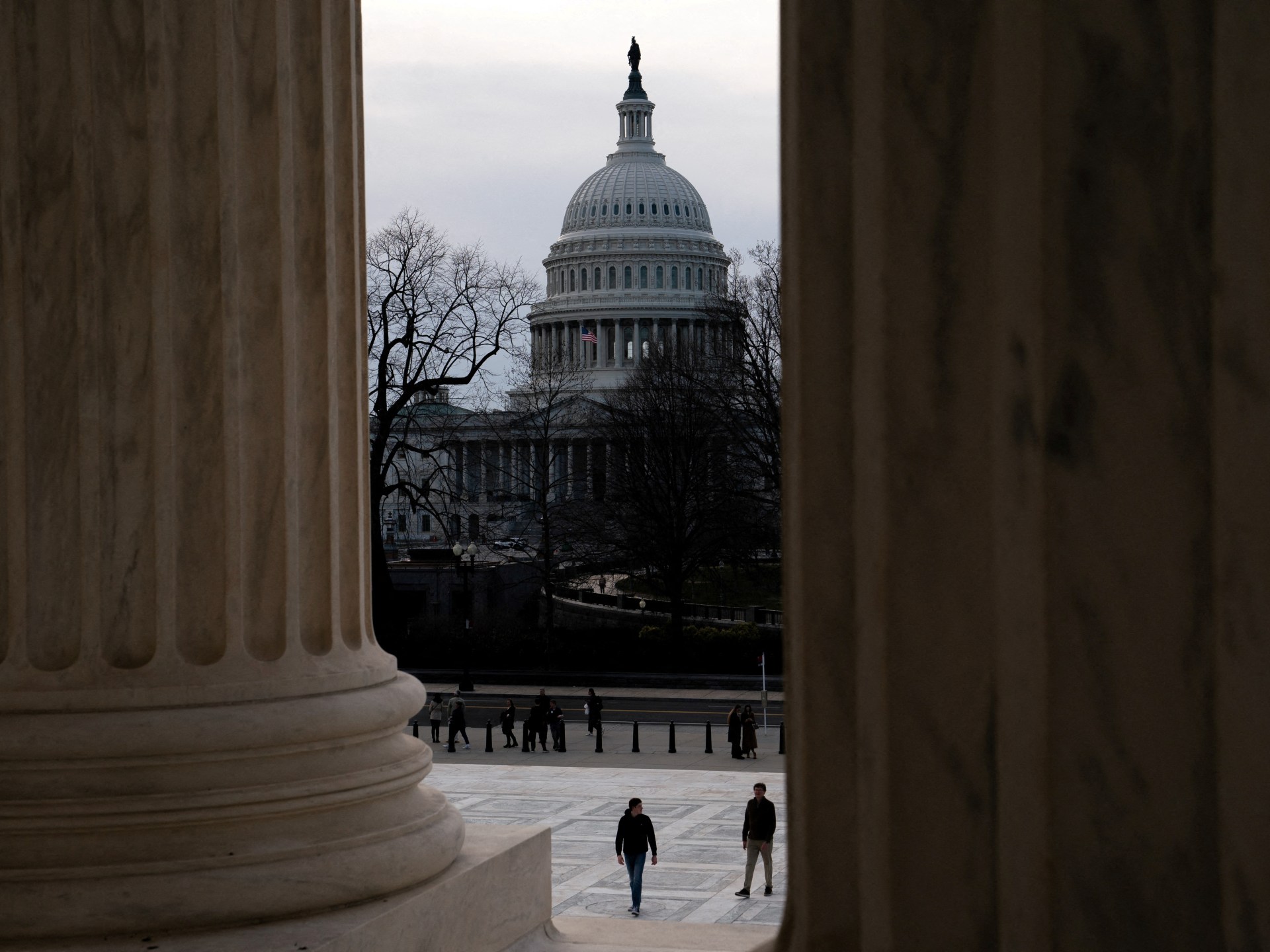
The Senate passed the bill after hours of deadlock over funding three-quarters of the government for the next six months.
President Joe Biden has signed a $1.2 trillion package of spending bills after the United States Congress passed the long-overdue bill just hours earlier, ending the threat of a split Government shutdown.
“The bipartisan funding bill I just signed keeps the government open, invests in the American people, and strengthens our economy and national security,” Biden said in the statement Saturday.
The White House said Biden signed the bill at his home in Wilmington, Delaware. Shortly after funding for three quarters of the government expired at midnight, it won the Senate by a vote of 74 to 24.
But the White House sent out a memo shortly after the deadline saying that the Office of Management and Budget had halted preparations for the shutdown because there was a high level of confidence that Congress would pass the law and the President will sign it on Saturday.
Key federal agencies, including the departments of Homeland Security, Justice, State and Treasury, which house the Internal Revenue Service, will remain funded through September 30 after the bill passed the Democratic-majority Senate.
But the measure did not include funding for mostly military aid to Ukraine, Taiwan or Israel, which is included in another Senate-passed bill that the Republican-led House ignored.
The bill too eliminates US funding for the United Nations Relief and Works Agency for Palestine Refugees (UNRWA) – which will provide vital on-the-ground services to Palestinians in Gaza and across the Middle East until March 2025.
The agency lost millions of dollars in international support, led by the United States, after Israel claimed that some of its personnel in the Gaza Strip were involved in the October 7 Hamas-led attacks.
The House of Representatives voted 286-134 on Friday, falling just short of the two-thirds majority needed to approve the six-bill package, which represents the largest and most controversial piece of federal funding.
More than 70 percent of the money is earmarked for defense spending, with the bills also covering the military, homeland security, health care and other services. Funding for these programs was scheduled to expire on March 22nd.
The Senate’s top Democrat, Chuck Schumer, said it was “a very long and difficult day, but we just reached an agreement to finish funding the government.”
“It is good for the country that we have reached this bipartisan agreement. It wasn’t easy, but tonight our persistence paid off,” he added.
We have just reached an agreement to complete the funding of the government this evening.
It wasn’t easy, but tonight our persistence paid off.
It’s good for the American people that we reached this bipartisan agreement.
— Chuck Schumer (@SenSchumer) March 23, 2024
It took lawmakers six months into the current fiscal year to nearly reach the finish line on state funding. The process has been slowed by conservatives pushing for more policy mandates and deeper spending cuts than the Democratic-led Senate or White House would consider.
The standoff required several short-term stopgap spending to maintain funding for the agencies.
The first package of Expenditure bills for the whole yearwhich funded the departments of Veterans Affairs, Agriculture and Interior, among others, Congress approved it two weeks ago with just hours before funding for those agencies expired.
The House vote reflected Republican anger over the contents of the package and the speed with which it was brought to a vote. House Speaker Mike Johnson brought the measure to the floor, although a majority of Republicans ultimately voted against it.
To win Republican support, Johnson announced a portion of spending increases secured for about 8,000 more detention beds for migrants awaiting immigration proceedings or deportation – an increase of about 24 percent from current levels. Republican leadership called for more money to hire about 2,000 border patrol agents.
Democrats, meanwhile, boasted of a $1 billion increase for Head Start, an early childhood development program and new child care centers for military families. They also promised a $120 million increase in funding for cancer research and a $100 million increase for Alzheimer’s research.






Recent Comments